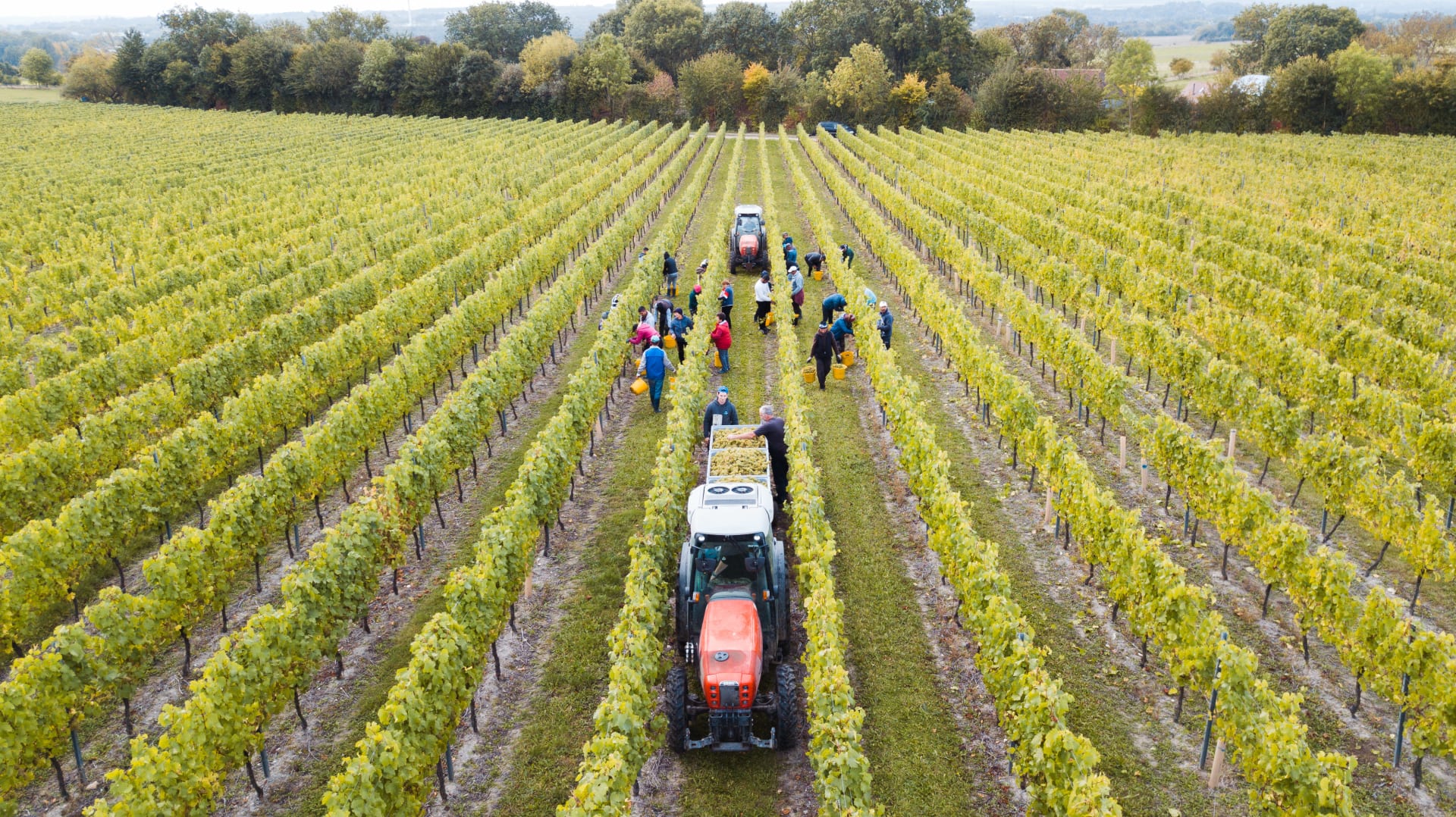Chapel Down Brut
- Decanter



Product Details
Your Rating
Somm Note
Winemaker Notes
The classic English sparkling wine, a fantastic alternative to champagne. Elegant aromas of red apple, lemongrass and freshly baked bread together with hints of strawberry, citrus and quince on the palate. Crisp and fresh with lively acidity and fine persistent bubbles.
Chapel Down Brut is great as an aperitif or a perfect pairing to salads, white meat and seafood such as the British classic - fish and chips.
Professional Ratings
-
Decanter
Smooth and ripe, with intense red fruit character. Crisp citrus and orchard fruits on the palate, with some toasty complexity.





Chapel Down is England’s leading winery. Located in Tenterden, in the heart of the Kent countryside, Chapel Down offers a world-class range of sparkling wines created using the Traditional Method, also used in Champagne, from chardonnays and pinot grapes grown in the Southeast of England.
With a mission to surprise and delight, Chapel Down has quickly gained support from leading chefs and sommeliers as well as receiving an unparalleled array of international awards.
Chapel Down offers guided tours of vineyards and of the winery, which boasts excellent visitor facilities, including an impressive restaurant, herb garden and retail shop.

A term typically reserved for Champagne and Sparkling Wines, non-vintage or simply “NV” on a label indicates a blend of finished wines from different vintages (years of harvest). To make non-vintage Champagne, typically the current year’s harvest (in other words, the current vintage) forms the base of the blend. Finished wines from previous years, called “vins de reserve” are blended in at approximately 10-50% of the total volume in order to achieve the flavor, complexity, body and acidity for the desired house style. A tiny proportion of Champagnes are made from a single vintage.
There are also some very large production still wines that may not claim one particular vintage. This would be at the discretion of the winemaker’s goals for character of the final wine.

The limestone soils of England’s southern end have proven ideal for the production of British sparkling wine. While it might seem too damp and cold for grape growing in England, recent warm summers and the onset of global warming signify great future growth for the British wine industry.
